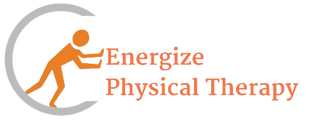Physical Therapy in Elmhurst & Flushing for Lower Back
Q: I hurt my back at work six weeks ago and I'm still hobbling around. My wife wants me to give it more time before going back to work. Mentally, I'm ready and my job does keep me moving around, which seems to help. What do you think?
A: Researchers from the Netherlands recently put together a report that summarizes the evidence on deconditioning and chronic low back pain. They took a look at all the studies done on chronic low back pain sufferers with two things in mind: physical activity levels and physical fitness.
Physical activity included daily activities of living like cooking, walking, working, bathing, driving, brushing teeth, and so on. Physical fitness included muscle strength, endurance, postural control, and cardiorespiratory function.
Two interesting results were observed. First, the physical activity level of patients with chronic low back pain wasn't that different from healthy individuals. And second, the risk of developing long-term back pain was highest among sedentary (inactive) people and those who participate in strenuous activities.
Several studies have shown that the disability associated with chronic low back pain really starts in the mind. Patients who perceived that they were losing function and became fearful of moving experienced more disability than those who worked and played despite their pain.
Patients who see their pain as threatening become afraid that movement will increase the pain, so they stop moving. This phenomenon has been labeled catastrophizing and may be a factor in deconditioning but that hasn't been proven yet. Two other results of inactivity are weight gain and loss of bone density.
Researcher shows that people who continue working despite their back pain have better physical fitness and conditioning. The conclusion of the studies is that people should be encouraged to stay active at work.
Reference: Jeanine A. Berbunt, et al. Cause or Effect? Deconditioning and Chronic Low Back Pain. In Pain. June 2010. Vol. 149. No. 3. Pp. 428-430.
